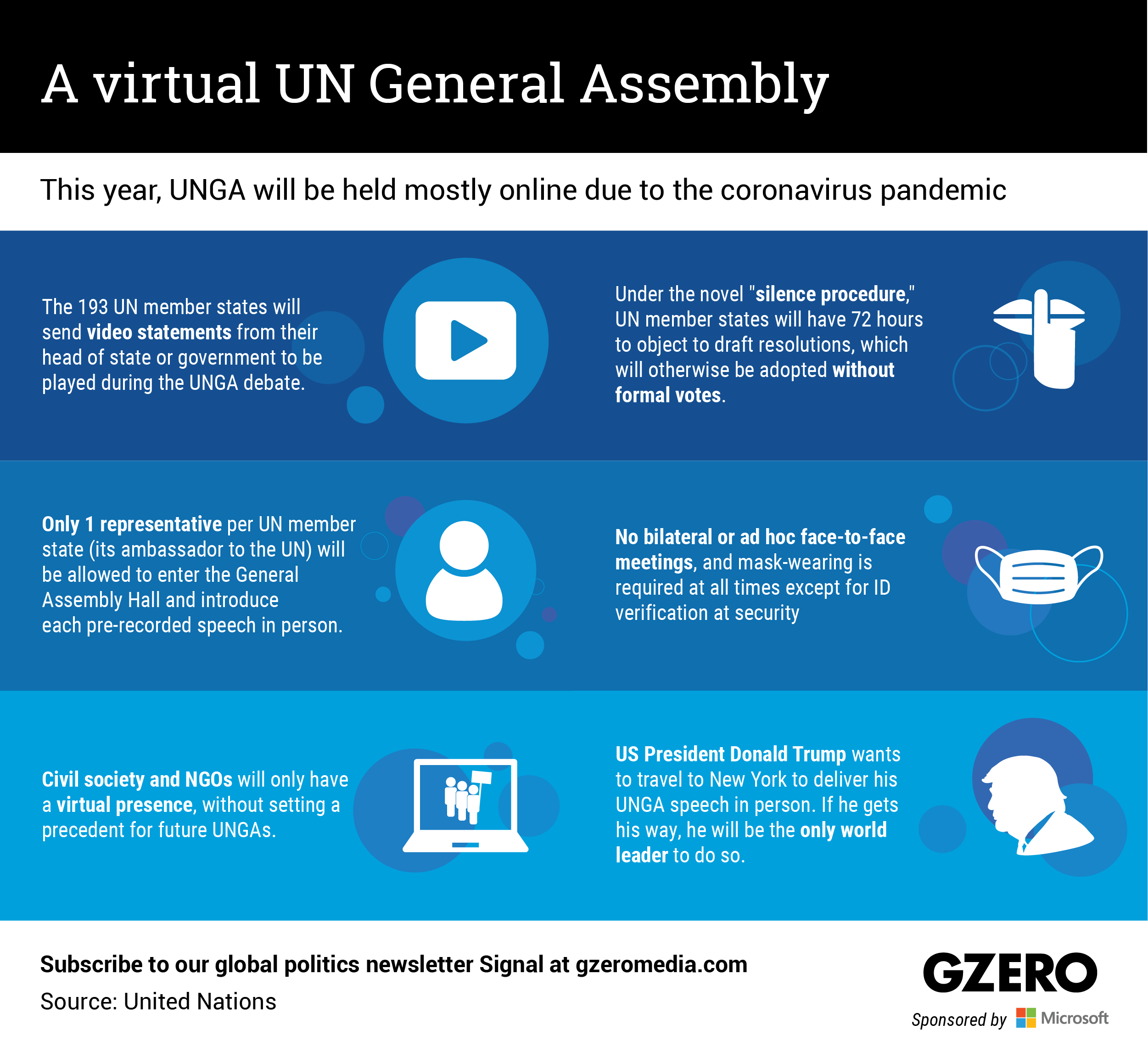This year's United General Assembly will be very different. Hotels in New York will not be full of famous heads of state, metal detectors, or US secret service agents as the coronavirus pandemic has turned the world's largest diplomatic gathering into a mostly online affair to enforce social distancing. A virtual UNGA requires a 20th century institution — which turns 75 and still thinks in analog in many ways — to rapidly embrace 21st century technology. How will UNGA adapt to its new virtual setting? Here are a few things that will change.
More For You
1,170: The number of high-rise buildings in Kyiv that were left without heating following a barrage of Russian attacks last night on Ukraine’s capital and its energy facilities, per Kyiv Mayor Vitali Klitschko.
Most Popular
What We’re Watching: US critical minerals summit, Rafah crossing reopens, Border violence in Pakistan
U.S. President Donald Trump and Japanese Prime Minister Sanae Takaichi hold up signed documents regarding securing the supply of critical minerals and rare earths, at a bilateral meeting at Akasaka Palace in Tokyo, Japan, October 28, 2025.
Representatives from the European Union, United Kingdom, Japan, and others will meet in Washington this week to discuss a strategic alliance on critical minerals.
Hard numbers: Large protests in Czechia, UAE-linked firm has large stake in the president’s company, & More
80,000: The number of people estimated to be in the streets of Czechia on Sunday to show their support for President Petr Pavel after he blocked the nomination of an environmental minister who performed the Nazi salute and posted Nazi memorabilia.
The US has started handing $1,000 to the bank accounts of newborn babies. But can policies like this one help boost sagging birthrates in advanced democracies?
